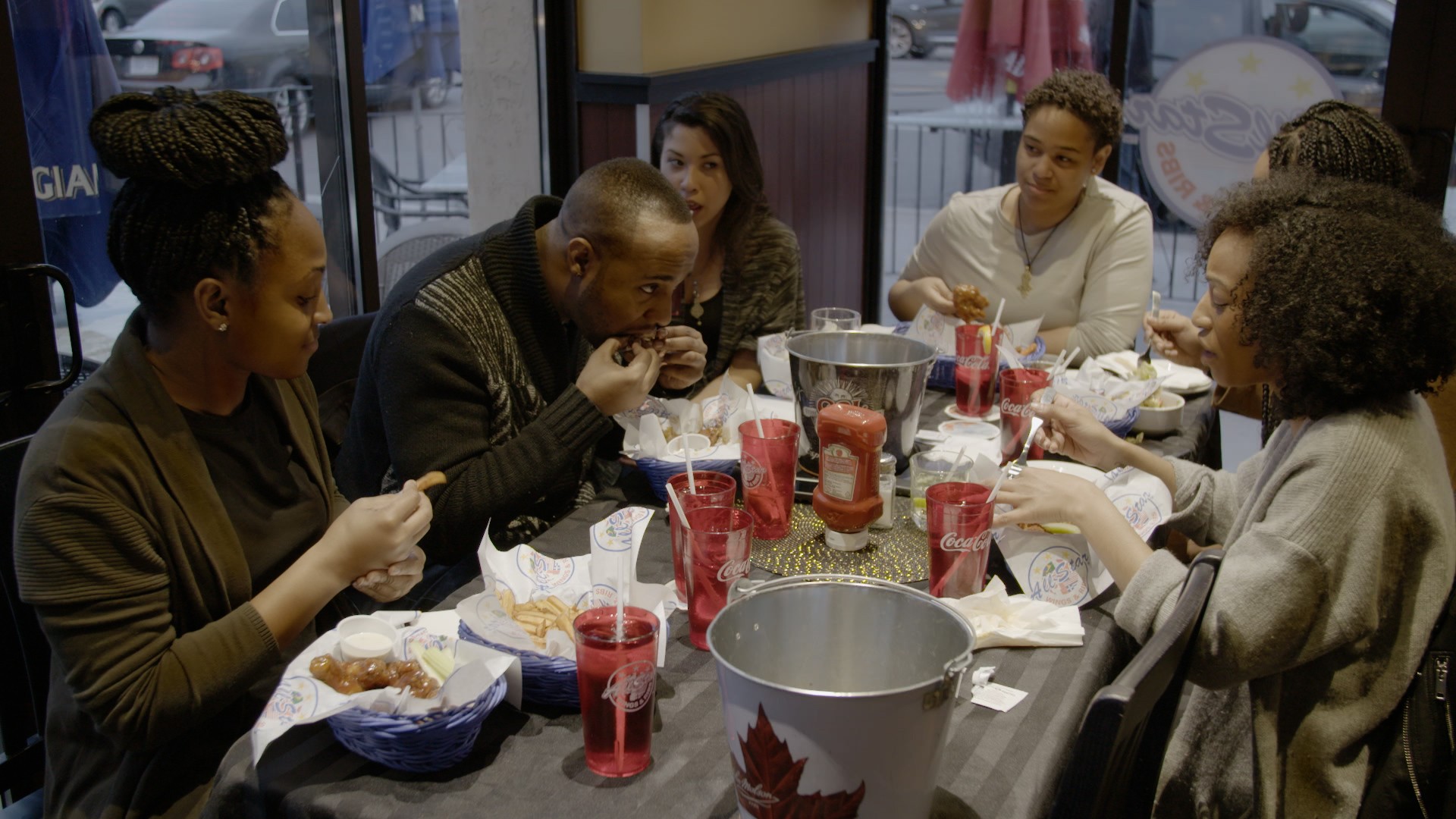Image via Shutterstock
Earlier this month, a prospective landlord asked Toronto resident Mark Dublin for a criminal background check with his rental application. Skeptical about the legality of this unusual request, Dublin took to Bunz, a popular local Facebook group, for a second opinion. Over 30 commenters slammed the landlord’s actions and many accused him of racism because Dublin is black.By now we all know that finding housing in Toronto is about as dreadful as dragging your feet through a bed of rusty nails for weeks on end. For people of colour and other marginalized communities, that experience is often amplified due to discrimination.Take the case of one Mississauga, Ont. landlord as an example, who literally told black men not to inquire about his apartment vacancy. Or there’s the landlord who was criticized for refusing to accommodate his Muslim tenants’ religious practices. And, well, the list goes on. The Ontario Human Rights Commision explicitly prohibits this kind of behaviour, stating that housing is a human right and that people cannot be harrassed, treated unfairly or refused an apartment because of factors that include race, ethnic background, religion, gender identity and sexual orientation. But that hasn’t stopped a lot of landlords within the city.Matthew, a Toronto-based nurse who’s Jamaican and Portuguese, empathizes with Dublin’s experience, calling it “unacceptable.”Before finding his current place, Matthew himself had difficulties being accepted as a tenant. While condo-hunting with his cousin, who’s also black, they faced several roadblocks when condo owners used photo ID to screen potential tenants.“Every time we would give photo ID, we would hear back right away [from the landlord saying], ‘Oh no, we're going to go with somebody different,’” Matthew told VICE. After getting turned down from five out of seven places (the other two being unreasonably pricey), they questioned if it was a racial issue and briefly shifted their interest to Regent Park, a neighbourhood further from their work but with a larger black community.“It feels awful,” Matthew said. “We didn't meet these people, they didn't get to know us, they didn't speak to us, they just saw photos of us. I don't know what the landlords looked like, but it made me feel like crap regardless. And if it was a racial issue, that's fucked up.”Obviously, landlords are rarely ever explicitly racist, so it can be hard to accuse a landlord of discrimination without any real evidence. In 2009, the Centre for Equality Rights in Accommodation actually produced a report on housing discrimination in Toronto, indicating that race and ethnicity were widespread factors of discrimination (along with mental illness and marital status). Drawing on hundreds of interactions between landlords and potential renters, CERA found a single black parent was 26 percent more likely to encounter significant discrimination.Due to the nature of the issue, researchers noted that their numbers “likely underestimated the magnitude of the problem.” As for today, where Toronto is ascending the worst housing crisis in years, we don’t yet know how those numbers have changed.Ruth*, 22, says it’s her intuition that usually tells her when something is wrong. When she was studying at Humber College and viewing a house to rent nearby, Ruth recalls the landlord asking her and her mother where they’re from.“I knew what he was trying to get at. My mom said, ‘We're Canadian.’ And he asked again like, ‘No, no, where are you from?’ And she said, ‘We're from Rwanda.’ He then asked Ruth to show him her student ID.“At that point I felt uncomfortable because first you're asking me if we're from here and then all of a sudden you're asking for my student ID because you don't think I'm a student?”Sandra recognizes that this kind of discrimination is not limited to just people of colour—it’s also LGBTQ people, Indigenous folk, those with disabilities, or of certain ages, marriage statuses or religions, to name a few.“The first issue that we need to talk about would be discrimination as a human race. That, as a whole, needs to change,” Sandra says.As Toronto and other big cities become more unbearingly expensive, we look to community action, as seen in movements like the Parkdale rent strike, as the only efficient way to take control of the rental market. By banding together we can debase the landlords who are steadily ruining it for us all, because at the end of the day, the rent is just too damn high for this shit.*Names have been changed to protect privacy.Follow Ebony on Twitter.
The Ontario Human Rights Commision explicitly prohibits this kind of behaviour, stating that housing is a human right and that people cannot be harrassed, treated unfairly or refused an apartment because of factors that include race, ethnic background, religion, gender identity and sexual orientation. But that hasn’t stopped a lot of landlords within the city.Matthew, a Toronto-based nurse who’s Jamaican and Portuguese, empathizes with Dublin’s experience, calling it “unacceptable.”Before finding his current place, Matthew himself had difficulties being accepted as a tenant. While condo-hunting with his cousin, who’s also black, they faced several roadblocks when condo owners used photo ID to screen potential tenants.“Every time we would give photo ID, we would hear back right away [from the landlord saying], ‘Oh no, we're going to go with somebody different,’” Matthew told VICE. After getting turned down from five out of seven places (the other two being unreasonably pricey), they questioned if it was a racial issue and briefly shifted their interest to Regent Park, a neighbourhood further from their work but with a larger black community.“It feels awful,” Matthew said. “We didn't meet these people, they didn't get to know us, they didn't speak to us, they just saw photos of us. I don't know what the landlords looked like, but it made me feel like crap regardless. And if it was a racial issue, that's fucked up.”Obviously, landlords are rarely ever explicitly racist, so it can be hard to accuse a landlord of discrimination without any real evidence. In 2009, the Centre for Equality Rights in Accommodation actually produced a report on housing discrimination in Toronto, indicating that race and ethnicity were widespread factors of discrimination (along with mental illness and marital status). Drawing on hundreds of interactions between landlords and potential renters, CERA found a single black parent was 26 percent more likely to encounter significant discrimination.Due to the nature of the issue, researchers noted that their numbers “likely underestimated the magnitude of the problem.” As for today, where Toronto is ascending the worst housing crisis in years, we don’t yet know how those numbers have changed.Ruth*, 22, says it’s her intuition that usually tells her when something is wrong. When she was studying at Humber College and viewing a house to rent nearby, Ruth recalls the landlord asking her and her mother where they’re from.“I knew what he was trying to get at. My mom said, ‘We're Canadian.’ And he asked again like, ‘No, no, where are you from?’ And she said, ‘We're from Rwanda.’ He then asked Ruth to show him her student ID.“At that point I felt uncomfortable because first you're asking me if we're from here and then all of a sudden you're asking for my student ID because you don't think I'm a student?”Sandra recognizes that this kind of discrimination is not limited to just people of colour—it’s also LGBTQ people, Indigenous folk, those with disabilities, or of certain ages, marriage statuses or religions, to name a few.“The first issue that we need to talk about would be discrimination as a human race. That, as a whole, needs to change,” Sandra says.As Toronto and other big cities become more unbearingly expensive, we look to community action, as seen in movements like the Parkdale rent strike, as the only efficient way to take control of the rental market. By banding together we can debase the landlords who are steadily ruining it for us all, because at the end of the day, the rent is just too damn high for this shit.*Names have been changed to protect privacy.Follow Ebony on Twitter.
Advertisement

Advertisement
Advertisement
Ruth says she’s experienced this on multiple occasions, including when her family moved back to Toronto after living in Rwanda during the 2000s.Vic Natola, a legal worker at Parkdale Community Legal Services, says this is a recurring pattern they’ve seen throughout 15 years of working to provide equitable housing.“There are countless examples of racialized folks applying for an apartment where everything's going well, they show up in person to see the apartment, the landlord looks at them and suddenly the apartment isn't available anymore,” Natola says. "And these are major corporate landlords who own a lot of buildings across Toronto."The problem is, there’s not much recourse for tenants in these situations.“The Landlord and Tenant Board doesn’t have the power to force a landlord to house [a tenant] who is wronged because they are racist,” Natola says. “Or if there is some kind of monetary compensation, it’s usually not enough for proper redress.”Sandra*, a Toronto landlord who works with other landlords to provide better housing options, was appalled when she heard about Dublin’s experience.“I am of the opinion that every single person has the right to housing,” she says. “There's nothing that I would need to know in a criminal background check that would affect your legal right to rent. It's none of my business.”
Advertisement
